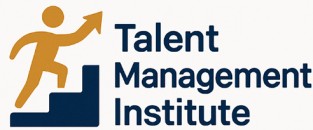Understanding Worldly Leadership
Understanding the complex nature of leadership becomes increasingly essential in our interconnected world. Worldly leadership, often defined by its ability to adapt and respond to diverse challenges, combines traditional principles with innovative strategies to address global needs. This fusion is not just about leading with authority but involves embodying characteristics that resonate with people across various cultures and beliefs.The Intersection of Faith and Leadership
The concept of worldly leadership invites leaders to look beyond conventional strategies, bridging gaps between cultural, religious, and organizational realms. Christian leaders, for instance, are called to intertwine their faith with leadership excellence. They follow principles exemplified by Jesus Christ, such as servant leadership, where the aim is to serve rather than to wield power. Jesus' life provides lessons in wisdom, humility, and the immense power of leading by example. While Christian leadership emphasizes godly values, worldly leaders also embrace diversity and invite various beliefs, leading to a more holistic approach. Integrating wisdom from Christ alongside insights from worldly practices results in a leadership style that respects both spiritual and organizational needs.Adapting Leadership Styles
Successful leaders recognize that one leadership style doesn't fit all. With globalization expanding the boundaries within which businesses operate, leaders must adapt their strategies. This may mean evolving from traditional power-oriented methods to approaches that empower and uplift team members. Leadership skills must evolve, incorporating aspects of personal growth and broader understanding of global contexts. As organizations continue to expand their reach, leaders will find themselves required to balance multiple leadership paradigms. Crafting an effective leader profile entails focusing on decision making that respects cultural nuances and organizational values. This, in turn, reinforces the organization's mission, driving it towards success in the increasingly complex landscape of global business. For a deeper understanding of how these principles translate into effective leadership strategies, consider exploring resources such as the Talent Management Institute's insights on crafting an effective leader profile, which provide actionable strategies and in-depth analyses.Cultural Intelligence in Leadership
Harnessing Cultural Sensitivity as a Leadership Tool
In the dynamics of global leadership, cultural intelligence is a vital skill that leaders need to develop and enhance. Understanding and respecting cultural diversity can be an essential way to bridge the gap in worldly leadership. When leaders embrace the rich tapestry of cultures within their organizations, they unlock the potential for positive outcomes and innovation.
Effective christian leaders often draw upon the wisdom of God and the teachings of Jesus to guide their interactions. This includes showing empathy, humility, and open-mindedness, which are crucial in understanding different cultural perspectives. Worldly leaders who adopt these virtues enable a nurturing and inclusive environment that positively impacts organizational life.
Fostering Mentorship and Personal Growth
Christian leadership highlights the importance of mentoring and personal growth, which translates well into the global marketplace. Business leaders must cultivate environments where mentorship thrives, allowing people from various cultural backgrounds to share their stories and insights. The power of mentorship not only helps in personal growth but also equips leaders with diverse perspectives and decision-making skills.
Creating a mentorship program that values inclusivity offers organizations a chance to capitalize on each leader's unique experiences and cultural insights. This servant leadership approach harmonizes different leadership styles, promoting a collective effort towards achieving common organizational goals.
Empowering Leaders to Lead with Purpose
A transformational leader, whether guided by worldly or christian principles, will strive to create a profound impact on the teams they lead. The holy spirit of leadership is reflected in the empowerment of thought-diverse teams, where each member's contribution is recognized and appreciated. Empowering leaders to lead with purpose encourages a culture where leaders' hands are open to change and innovation, ultimately benefiting the entire organization.
For leaders seeking to further enhance their capability in global settings, continuous development through resources like a leadership academy focusing on cultural intelligence and personal growth is crucial. This commitment to lifelong learning in leadership management continues to define what it means to lead effectively today.
Building a Diverse Workforce
Promoting an Inclusive and Varied Work Environment
Creating a diverse workforce goes beyond merely gathering individuals from different cultures—it’s about integrating a multitude of perspectives, backgrounds, and experiences into the very fabric of an organization. Global leadership necessitates an understanding of how to manage diverse teams effectively, combining cultural intelligence with strategic vision. A leader who embodies servant leadership understands the value of leading from the heart, leveraging the influence of others, and embracing diversity as a path to organizational transformation. This leader doesn’t merely acknowledge the differences among their team members but also actively seeks to uplift each individual’s potential. As Jesus Christ exemplified, influential leadership often involves being a servant first, putting others before oneself. To build a truly diverse workforce, leaders must:- Embrace Cultural Differences: The wisdom of God and worldly leadership intersect when leaders comprehend the significance of differing cultural norms, beliefs, and behaviors. This understanding aids leaders in making informed decisions that improve organizational effectiveness and harmony.
- Encourage Open Communication: Creating a safe environment that values openness encourages individuals to share their unique perspectives and experiences. This environment fosters personal growth and bolsters creativity and innovation.
- Provide Equality of Opportunity: Ensuring that all team members have the same access to resources and development opportunities is crucial. Organizations must establish pathways that support advancement regardless of personal background.
Overcoming Communication Barriers
Navigating Linguistic and Cultural Differences
In the expansive landscape of talent management, overcoming communication barriers is pivotal for effective leadership. For leaders seeking to guide diverse teams across various geopolitical landscapes, communication extends beyond language proficiency. Cultural subtleties significantly influence both verbal and non-verbal exchanges, requiring leaders to adopt strategies that embody not only understanding but also empathy. Cultural intelligence is fundamental in bridging these divides. When leaders align their communication style with the cultural norms of their team members, it not only enhances mutual comprehension but also fosters a sense of respect and inclusivity. For example, in certain cultures, direct communication is valued, whereas others may prefer a more indirect approach. Demonstrating respect for these nuances can enhance organizational harmony, reducing potential conflict and misunderstandings. Furthermore, leveraging the wisdom of others, including feedback from team members familiar with specific cultural customs, can boost personal growth of leaders. By learning from these insights, they can moderate their communication style to resonate better across global teams, thereby benefiting both worldly and Christian leadership paradigms. One practical approach to overcoming communication hurdles is through leadership training programs. Organizations investing in these resources empower their leaders to develop greater cultural awareness and sensitivity. By understanding the profound impact of cultural dynamics on leadership, organizations can craft a more cohesive and proactive environment. Ultimately, the efficacy of a leader hinges upon their ability to effectively convey their vision and decisions across cultural boundaries, paving the way for international collaborations and transforming challenges into opportunities for growth. In doing so, leaders hand the baton of collective success to all team members, driving organizational change with wisdom.Implementing Inclusive Policies
Crafting Inclusive Policies for Global Leadership
In the realm of talent management, implementing inclusive policies is not just a moral imperative but a strategic necessity. As organizations expand globally, leaders must ensure that their policies reflect the diverse tapestry of cultures and backgrounds that make up their workforce. This involves a deep understanding of worldly leadership, where the wisdom of a leader is measured by their ability to embrace and integrate diversity into the organizational framework.
Inclusive policies are the backbone of successful global leadership. They empower leaders to harness the full potential of their teams, fostering an environment where every individual feels valued and respected. This approach aligns with the principles of servant leadership, where the focus is on serving the needs of the team, rather than exerting power over them.
Key Components of Inclusive Policies
- Diverse Hiring Practices: Organizations should strive to recruit talent from a wide range of backgrounds, ensuring that different perspectives are represented at all levels of the company.
- Cultural Competency Training: Providing training that enhances cultural intelligence in leadership helps leaders understand and appreciate the nuances of different cultures, leading to more effective communication and collaboration.
- Flexible Work Arrangements: Recognizing the diverse needs of employees, such as varying time zones and family commitments, can lead to policies that accommodate these differences, boosting morale and productivity.
- Equitable Compensation and Benefits: Ensuring that compensation packages are fair and equitable across the board is crucial in demonstrating the organization's commitment to inclusivity.
Leaders who seek to implement inclusive policies must also be adaptable, recognizing that what works in one region may not be effective in another. This adaptability is a hallmark of effective leadership and is essential for navigating the complexities of global talent management.
In conclusion, the journey toward inclusivity requires leaders to be proactive, empathetic, and willing to embrace change. By fostering an inclusive environment, organizations not only enhance their competitive edge but also create a workplace where everyone can thrive, reflecting the life and teachings of figures like Jesus Christ, who championed love, respect, and unity among people.
Measuring Success in Global Talent Management
Assessing the Impact of Global Talent Strategies
In the realm of global talent management, measuring success is not just about numbers. It's about understanding the impact of leadership strategies on organizational growth and personal development. Leaders in organizations need to evaluate how their approaches align with both worldly and Christian leadership principles, ensuring that their strategies resonate with the diverse workforce they aim to nurture.
Key Metrics for Evaluating Success
To effectively gauge the success of talent management initiatives, leaders should consider a mix of quantitative and qualitative metrics:
- Employee Engagement: High levels of engagement often reflect successful leadership and inclusive practices. Regular surveys can provide insights into how employees feel about the organizational culture and leadership.
- Diversity and Inclusion: Tracking diversity metrics and inclusion initiatives can highlight the effectiveness of policies aimed at building a diverse workforce. This aligns with the earlier focus on cultural intelligence and communication barriers.
- Leadership Development: Assess the growth of leadership skills within the organization. Are leaders being developed to handle global challenges with wisdom and a servant leadership mindset?
- Organizational Performance: Evaluate how talent management strategies contribute to overall business outcomes, such as increased productivity and market expansion.
Continuous Improvement and Adaptation
Success in global talent management requires continuous adaptation. Leaders must remain open to change, guided by both worldly wisdom and principles of Christian leadership. This involves regular reviews of policies and practices, ensuring they meet the evolving needs of the organization and its people. By fostering an environment of personal growth and embracing the power of the Holy Spirit, leaders can drive sustainable success in their organizations.






